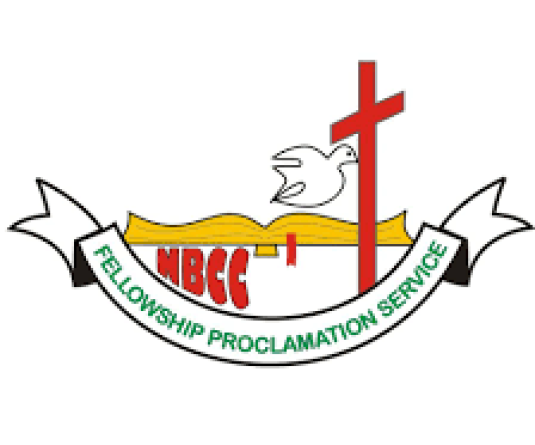
“Those times made me very sad, but they also taught me that no political ambition is worth the price of our unity"
Mathew Rongmei
In the soft October light that streamed across Kohima’s hills, the hall was filled with a quiet sense of homecoming. The Naga People’s Front (NPF) Central Executive Council had gathered — familiar faces, seasoned leaders and old comrades.
When Chief Minister Neiphiu Rio rose to speak, there was both solemnity and gratitude in his voice.
“I praise God Almighty for this wonderful day,” he began, looking across the room. “That we are able to get together once again under the banner of the Naga People’s Front.”
For Rio, it was more than a political meeting. It was a return — not just to a party, but to a purpose deeply tied to the Naga people’s journey. His words carried the tone of a man who had seen much of Nagaland’s changing tides, and yet, whose faith in the Naga spirit had never wavered.
He took his listeners back through the corridors of memory — to the early 1970s, when Nagaland’s regional politics was still finding its voice. “My political journey began in 1973,” he recalled, “when the United Democratic Front was still a movement of idealists trying to shape a future for our people.”
By 1974, the young Rio had already taken up leadership as the youth president of Kohima division. “Those were difficult years,” he said softly, “but they were also years that taught us what it means to serve.”
From the turmoil of the early Congress years to the birth of new political movements, Rio traced each milestone not as an account of ambition, but as a story of calling. “God was building me through responsibilities,” he reflected, “guiding me through the storms of politics and teaching me patience.”
The audience listened as he revisited the years of instability — the fall of governments, the imposition of President’s Rule, and the hard choices that shaped his path. There were moments of regret, of struggle, but above all, there was gratitude.
Rio reminded the gathering of the long and living history of the NPF — once the Nagaland People’s Council, reborn as the Nagaland People’s Front, and later, the Naga People’s Front. “This party,” he said, “is not just a political organisation. It is a legacy of our people’s aspirations — the oldest regional party in the Northeast, and among the oldest in the country.”
He spoke of leaders who had carried the torch through decades, of pioneers who kept the faith when times were dark. “Any leader — be it me or anyone else — must uphold the ideology and serve our people honestly,” he said. “If we do that, we will grow from strength to strength and unite our people in the name of God.”
The hall fell silent as Rio recalled the darker years — when the spirit of brotherhood gave way to anger and misunderstanding. His voice grew heavier as he recounted the destruction of party offices in Kohima, Mokokchung, and Dimapur, acts that wounded not just the NPF but the very soul of Naga politics. “Those were painful days,” he said quietly. “Our own brothers turned against each other. The sight of our party offices in flames was not just the burning of buildings — it was the burning of our unity, of our shared dream.” He paused, letting the memory sink in. “Those times made me very sad,” he continued. “But they also taught me that no political ambition is worth the price of our unity.”
For Rio, the recent merger of the NDPP with the NPF was not merely strategic — it was spiritual. “It is not my wish to be president or chief minister,” he said humbly, “but the trust you have placed upon me has truly touched me. I believe it is the work of God — divine intervention — that has brought us together again.”
He acknowledged the September 6 resolution of the NPF, which urged reconciliation among old colleagues and called for the restoration of unity. “Even our elders and church leaders prayed for this moment,” he said, “and today, that prayer has been answered.”
While reaffirming the party’s regional character, Rio emphasized the importance of maintaining partnership and stability in governance. “The path of a regional party is never easy,” he reflected. “It demands sacrifice and resilience. Yet it is essential that we preserve the unique voice of the Naga people within the Indian Union.”
He reminded the gathering that true leadership lies not in competition but in cooperation — in balancing regional identity with pragmatic alliance. “Let us not be confused,” he said. “NPF in Manipur and NPF-NDPP in Nagaland should complement, not compete with, each other.”
As Rio’s voice softened toward the close, his message turned to the future — a future built on trust, inclusion, and the enduring motto of the NPF: “Peace for development, and development for peace.”
“The challenges before us are many — economic growth, youth employment, empowerment, and above all, a lasting and honorable political solution,” he said. “But with unity and sincere leadership, no goal is beyond our reach.”
He urged his colleagues to rise above personal ambition and rediscover the spirit that once bound them together. “Our strength lies in unity — unity in thought, unity in purpose, and unity in action,” he said.
As Rio’s words faded into the evening air, a deep and thoughtful silence filled the hall. In that quiet moment, it felt as if the NPF’s long journey — marked by struggles and divisions — had finally come full circle. The faces of those gathered showed both regret for the past and hope for what lay ahead, as if years of pain had finally begun to heal. Indeed, the Naga People’s Front has weathered many storms, but calm seas never made a skilled sailor.




.jpg)
.jpg)
